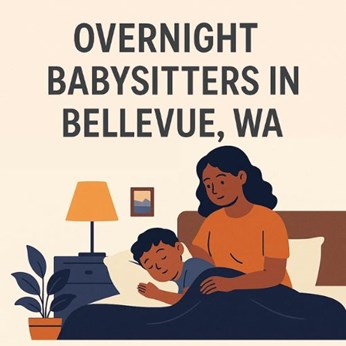Know Basic Facts About Alzheimer’s Disease
My initiative to write this blog today arouse out of concern for my friend’s father who was afflicted by Alzheimer’s disease that affected 60 to 80% of those affected by dementia. Considered as the 6th leading cause for death in USA, Alzheimer’s causes problems with memory, thinking and behavior, with the symptoms getting worse over time and interfering with the elder’s ability to carry on daily tasks.
Here are a few facts worth knowing:
• Understand that Alzheimer's is not a normal part of aging, though increasing age is a risk factor; most elders with this disorder are above the age of 65 years, though every 5 out of 100 cases of Alzheimer’s have an early onset somewhere in their 40’s or 50’s.
• Realize that Alzheimer's is a progressive disease; memory loss is mild in the early stages, but with time an elder loses his ability to carry on a conversation or respond to the environment. An elder with Alzheimer's lives for an average of eight years after symptoms becoming noticeable; however the survival may range from 4 to 20 years depending on age and other health conditions.
• Sad, but true for caregivers; there is no cure for Alzheimer's, though there are treatments to cure the symptoms and to temporarily slow down the worsening of dementia symptoms and improve the life of the elder and the caregivers. Recently a lot of research is being carried on to find better ways to treat the disease, delay its onset, and prevent it from developing.
• It is wrong to categorize all form of memory loss as Alzheimer's; an elder may have memory loss due to many other reasons. It is best to take your elder that is experiencing symptoms of dementia to a doctor who would be the best person to determine the cause and treat it.

• The first symptom of an elder afflicted by Alzheimer's is difficulty in remembering newly learnt information; changes first start appearing in the area of the brain that affects learning. The progress of the disease leads to other more severe symptoms like mood and behavioral changes, disorientation, and deepening confusion about events, time and place. The elder may have unfounded suspicions about family, friends and professional caregivers, more serious memory loss and behavior changes, difficulty speaking, swallowing and walking.
• Lastly it is best to realize that the elder with signs of Alzheimer’s may not himself recognize he has a problem, while his family and friends will; it is best to consult a doctor immediately for early diagnosis and treatment that could improve their quality of life. Two helpful support resources are ALZConnected, our messages boards and online social networking community, and Alzheimer's Navigator, a web tool that creates customized action plans, based on answers you provide through short, online surveys.
Image Courtesy:
Take the next step toward your goals
Share your requirement and find the best care providers in your area
-
Looking for a caretaker’s job? Build your profile and get in touch with families in your vicinity.
-
Discover nannies, babysitters, cooks, housekeepers, pet sitters, and elder care under one roof.
-
Get all the support you need to run a successful care center.
-
Search for appropriate centers near you depending on your needs.
Care Corner Insights: Blog Library

Overnight Babysitters in Bellevue, WA for Business-Travelling NRI Parents: Safety & Policies
For many NRI parents living in Bellevue, WA, frequent business trips are a reality. While traveling, one of the biggest concerns is ensuring your children are safe, cared for, and emotionally supported during overnight stays. Overnight babysitters ca

Indian Home-Style Cooks in Queens, NY: Tiffin-Style Weekly Meal Prep from Your Kitchen
Queens, NY, is home to one of the most diverse food cultures in the country, and Indian cuisine holds a special place among families looking for authentic, comforting meals. While restaurant takeout is convenient, nothing compares to the taste and nu

Baby Sleep Problems: What is Sleep Regression and How to Handle It
If you’re a parent, you know that baby sleep is one of the greatest mysteries of life. One day your little one is snoozing like an angel, and the next day they’re suddenly waking up every hour, fussing, or refusing to nap. Before you panic, there’s a

What is Validation Therapy? A New Approach to Dementia Care
Caring for loved ones with dementia is one of the most emotionally challenging journeys a family can face. Traditional methods often focus on correcting memory lapses or redirecting confused thoughts—but that can sometimes lead to frustration, stress

What is a Part-Time Nanny and Do You Need One
Parenting is a beautiful journey, but let’s be honest—it can also be exhausting! Between work deadlines, household chores, and family responsibilities, sometimes there just aren’t enough hours in a day. That’s where part-time nannies step in, offerin

Part-Time Housekeeper Hiring in Alpharetta, GA: Weekly Schedules, Pricing, and Must-Do Tasks
Keeping a home spotless while balancing work, family, and personal commitments can be overwhelming. For families and professionals in Alpharetta, GA, hiring a part-time housekeeper is one of the most practical solutions. Whether you need help once a

Affordable Daycares in Irving, TX with Indian Menu Options: Parent Reviews & Enrollment Tips
Finding the right daycare for your little one is never an easy decision—especially if you’re looking for one that fits your budget and offers familiar food options like an Indian-inspired menu. For parents in Irving, TX, the good news is that several

Can Babies Sleep on Their Side? Tips for Safe Baby Sleep
When it comes to newborns, every parent worries about the smallest details—how they sleep, what they wear, even which way they turn their tiny heads. One common question that pops up is: “Can babies sleep on their side?” The short answer? Not recom

8 Benefits of Hiring a House Cleaner for Your Home
Let’s be honest — keeping a home sparkling clean while juggling work, family, and daily life can feel like a full-time job in itself. That’s where professional house cleaners step in, turning the chaos into calm. If you’ve been debating whether to br

How to Care for a Gassy Baby? What’s Normal and what’s not – Expert Advice
If you’re a new parent navigating the world of burps, bubbles, and baby fussiness—welcome to the club! Gas in babies is incredibly common, especially in the first few months. But how do you know what’s normal and when it’s time to call in expert help